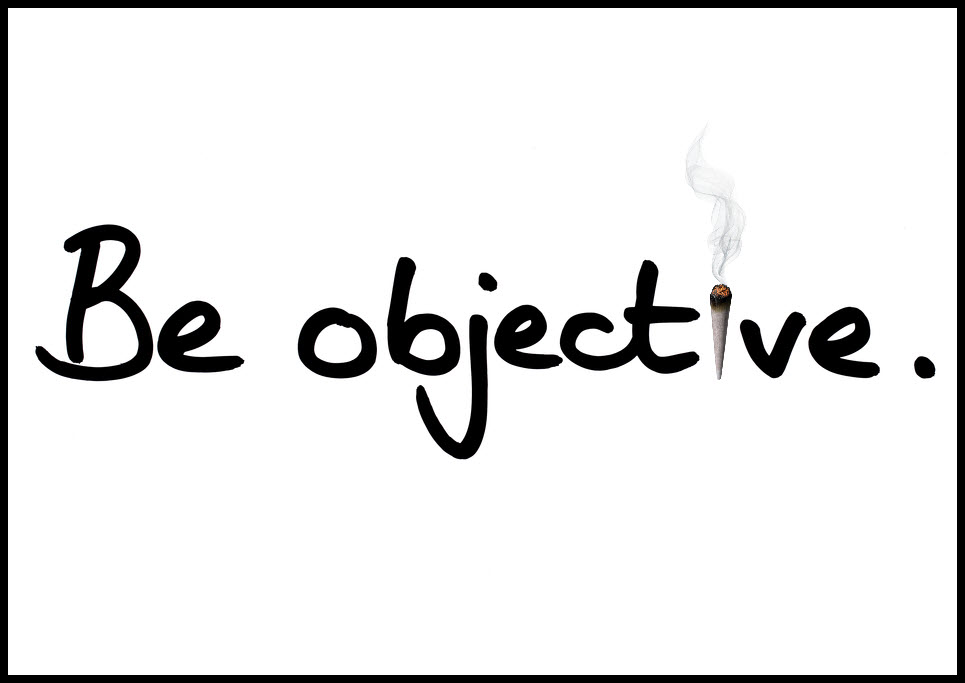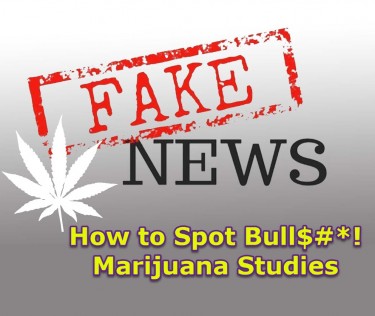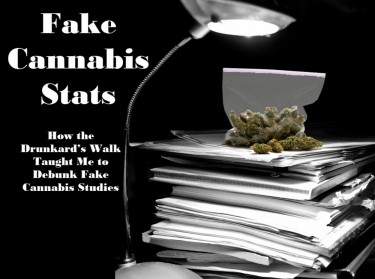
The Guide to Forming an Unprejudiced Opinion on Cannabis
I have researched and written about cannabis for many years. The sheer digital weight of my work on this wonderful plant can be measured in hundreds of gigabytes, if not a full terra of pure cannabis goodness.
Needless to say, I have an educated opinion about cannabis.
In contrast to many others, hundreds of thousands of factoids are trapped in the infinite cavities of my mind that surround this plant.
I may not be able to fully cite the source of this knowledge, but it usually takes a few moments to locate the source study or article I am referring to.
I’ve written entire books on the subject, interviewed experts, recorded a podcast for clients, made videos – whatever, I’ve worked on it in some form or another.
But why am I telling you all this?
In order to be able to accomplish this gigantic achievement, I had to search ten times as much research, opinions, clips, videos, pictures, infographics and interviews about the plant – that I unintentionally became a burden for the “how” to recognize bullshit!
The dichotomy of bullshit
Cannabis bullshit – or information that appears to be truthful but actually based on speculation, is abundant.
And it’s not just about the prohibition side of things.
There are many false claims made on “Pro Cannabis Sites” to support their products, appeal to their target audience, or simply use the cannabis hype to drive traffic.
It is important to realize, however, that there is bullshit on both sides of the spectrum – the bullshit on the ban side is far superior to that of cannabis activists.
Activists may “overestimate” the capabilities of cannabis due to a misunderstanding of the endocannabinoid system. They attribute the healing abilities of cannabis to many conditions that make it “impossible” for a plant to assume so many different conditions.
“Cannabis cures cancer” may be true subjectively – but in the medical context there is simply not enough “consistent data” to make the statement verifiable.
This is not to say that many people do not go into remission using cannabis oil to treat their cancer. It simply means that from a scientific point of view, the official position on whether or not cannabis cures cancer has not been established beyond doubt.
Prohibitionists, on the other hand, would outright lie about cannabis, spreading flawed studies as if it were a case of teenage herpes, all with the intention of distorting public opinion about cannabis.
The difference between the two is that, on the one hand, you may give false hopes to someone desperate for answers – and, on the other, you create policies that negatively affect society.
The bottom line is that bullshit isn’t good for cannabis on either side.
How do you recognize bullshit?
In the digital age, the ability to spot bullshit is a superpower!
Some bullshit is much more sophisticated than other bullshit. For example, there’s government-funded bullshit – in the form of NIDA-funded anti-cannabis studies that seem perfectly legitimate.
They have scientists doing all kinds of bullshit tests on cannabis to check how dangerous it is. In fact, around 95% of all NIDA funding over the past two decades has been dedicated to proving how harmful cannabis is.
Only 5% of the budget was devoted to finding useful aspects of the facility.
And they still have the boldness to say: “We need more research!”
A Few Tips To Know When Something Is Bullshit!
Most of you are not going to dig into government-funded bullshit as deeply as I do. Most of you would get your cannabis-related news from websites like these or “official news sites”.
These pages, like me – read these studies, then summarize the study for you. Typically with an outlandish claim like, “Teenagers who smoke marijuana are more suicidal than those who don’t”.
While the study they cited may back up the claims, if you step into the study and poke around a little – it usually falls flat on the face.
These articles usually end with “Scientists do not claim that cannabis causes this, and it may be because people with suicidal tendencies meditate on cannabis themselves …” which means pretty much, “everything you read here may not be true, because … that one factor “.
But how do you know if all you read is a news source or two.
Here are my quick tips:
-
Always read the abstract and the intro conclusion of the current studies
-
If there are no reference links – can you really take it that seriously?
-
Follow the Money – Who is Funding the Study?
-
Who is working on the study – what are your references?
-
Who wrote the article? What’s your reference?
These tips apply to both pro-cannabis and anti-cannabis sites and sources.
It gets a little trickier with videos as they usually don’t quote their information. But in the case of a speaker it is important to pay attention to it;
-
Speaker’s references
-
Who is funding it?
-
What industry do you work in?
When it comes to memes and infographics – while they are really helpful for condensing information, an unquoted infographic is just a pretty meme.
Do your own research!
The last thing I can tell you is that you should be actively doing your own research. Try to expose things you believe in using science, try to expose studies against cannabis. Exercise your mental critical thinking muscle and over time your bullshit meter will be fine-tuned.
The most important thing you should always keep in mind is: “Even experts can make mistakes and be subject to their own prejudices”.
Hence, the only way to trust science is to subject all of the information you get through the scientific process.
While some may find it difficult, try not to idealize cannabis.
Don’t get me wrong – it’s one of the most remarkable plants in the world that affects our lives on an intimate level. But at the end of the day, even water that is vital, given the right conditions, can kill a person.
While cannabis is significantly more difficult to die, it doesn’t mean the plant is completely harmless.
It may be for some, it may not be for others – but only if you maintain an objective stance on cannabis can you fully assess whether it is good or bad for you.
Follow the truth wherever it leads.
CANNABIS LIE DETECTORS, READ MORE ..

HOW TO DETECT FAKE MARIJUANA MEDICAL STUDIES READ THIS!
OR..

THE GUIDE TO DETECTING FAKE CANNABIS STATISTICS USED IN HEADINGS!

Post a comment: